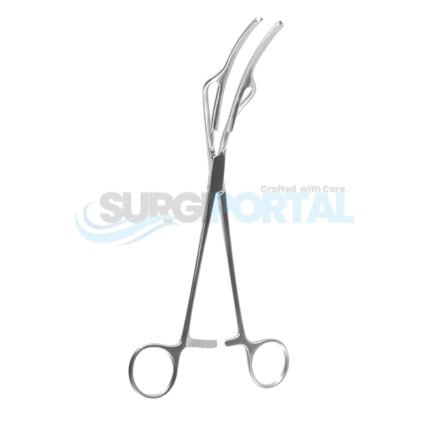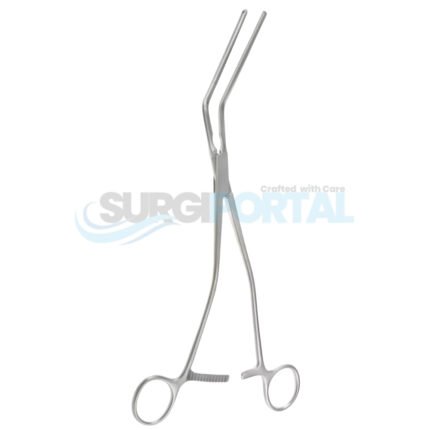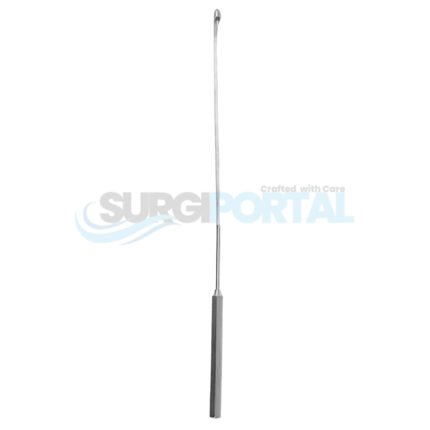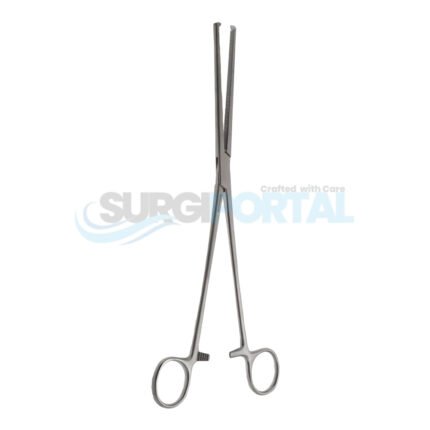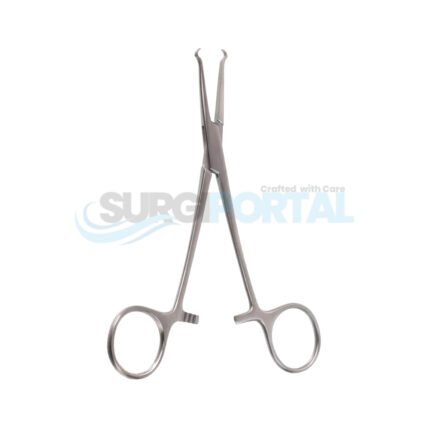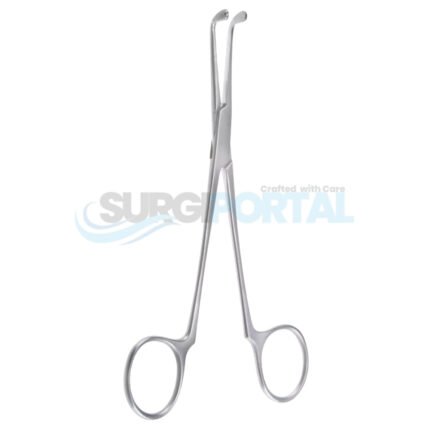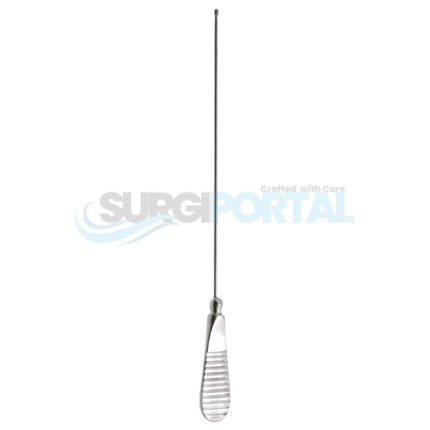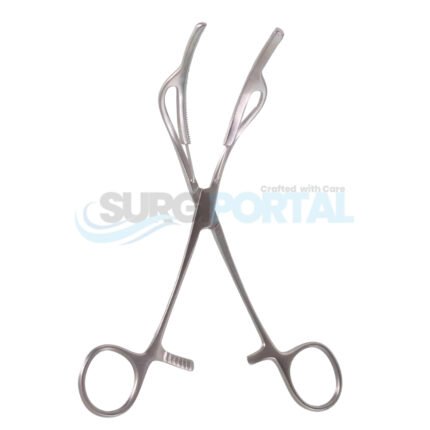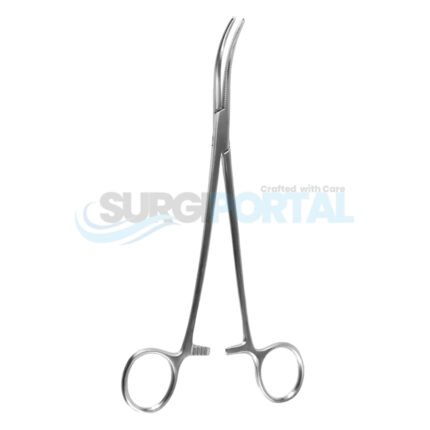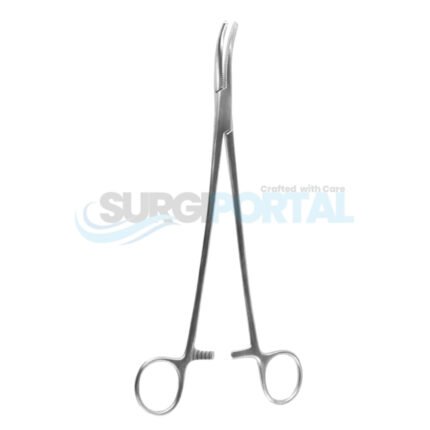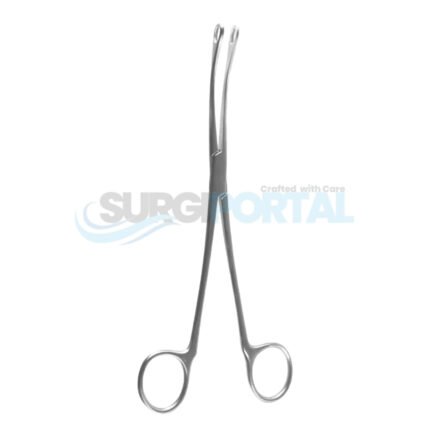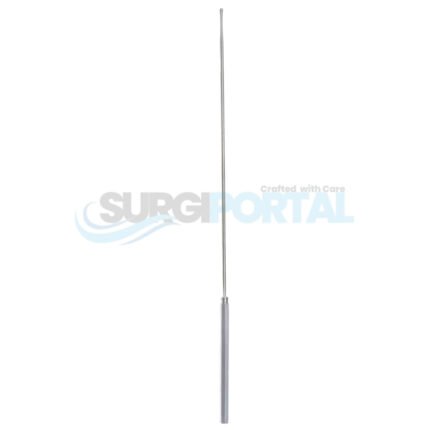Gastrointestinal
Gastrointestinal surgical instruments are specialized tools designed for the diagnosis, treatment, and repair of conditions affecting the stomach, intestines, esophagus, and related digestive structures. These precision instruments are used across a wide range of procedures, including bowel resections, gastric surgeries, hernia repairs, colostomies, and polyp removals. They are essential in both open and minimally invasive surgeries, enabling surgeons to operate with accuracy, safety, and minimal trauma to surrounding tissues.
Manufactured from high-quality medical-grade stainless steel, gastrointestinal instruments are built for durability, corrosion resistance, and repeated sterilization. Common tools in this category include intestinal clamps, bowel graspers, anastomosis staplers, biopsy forceps, retractors, suction–irrigation devices, dilators, and suture holders. Each instrument is engineered to provide secure tissue handling, precise cutting, and efficient surgical access while minimizing the risk of leakage, ischemia, or unnecessary tissue damage.
These instruments play a critical role in procedures such as gastric bypass, colectomy, gastrectomy, appendectomy, esophagectomy, and intestinal fistula repair. Their ergonomic designs support surgeon comfort during prolonged operations, while specialized tips and jaws allow for effective manipulation of delicate gastrointestinal tissues. In minimally invasive surgeries, laparoscopic GI instruments feature insulated shafts, slim profiles, and compatibility with standard trocars for enhanced safety and accessibility.
Available in reusable or single-use formats, gastrointestinal instruments comply with stringent infection control standards. Reusable models withstand repeated autoclaving without compromising performance, while single-use options provide maximum sterility and convenience in high-volume settings.
Trusted by general surgeons, gastrointestinal specialists, and colorectal teams worldwide, these instruments are vital for delivering optimal patient outcomes in digestive system surgeries. Their combination of precision, reliability, and adaptability ensures they remain a cornerstone of modern surgical practice.
Gastrointestinal surgical instruments are specialized tools designed for the diagnosis, treatment, and repair of conditions affecting the stomach, intestines, esophagus, and related digestive structures. These precision instruments are used across a wide range of procedures, including bowel resections, gastric surgeries, hernia repairs, colostomies, and polyp removals. They are essential in both open and minimally invasive surgeries, enabling surgeons to operate with accuracy, safety, and minimal trauma to surrounding tissues.
Manufactured from high-quality medical-grade stainless steel, gastrointestinal instruments are built for durability, corrosion resistance, and repeated sterilization. Common tools in this category include intestinal clamps, bowel graspers, anastomosis staplers, biopsy forceps, retractors, suction–irrigation devices, dilators, and suture holders. Each instrument is engineered to provide secure tissue handling, precise cutting, and efficient surgical access while minimizing the risk of leakage, ischemia, or unnecessary tissue damage.
These instruments play a critical role in procedures such as gastric bypass, colectomy, gastrectomy, appendectomy, esophagectomy, and intestinal fistula repair. Their ergonomic designs support surgeon comfort during prolonged operations, while specialized tips and jaws allow for effective manipulation of delicate gastrointestinal tissues. In minimally invasive surgeries, laparoscopic GI instruments feature insulated shafts, slim profiles, and compatibility with standard trocars for enhanced safety and accessibility.
Available in reusable or single-use formats, gastrointestinal instruments comply with stringent infection control standards. Reusable models withstand repeated autoclaving without compromising performance, while single-use options provide maximum sterility and convenience in high-volume settings.
Trusted by general surgeons, gastrointestinal specialists, and colorectal teams worldwide, these instruments are vital for delivering optimal patient outcomes in digestive system surgeries. Their combination of precision, reliability, and adaptability ensures they remain a cornerstone of modern surgical practice.

